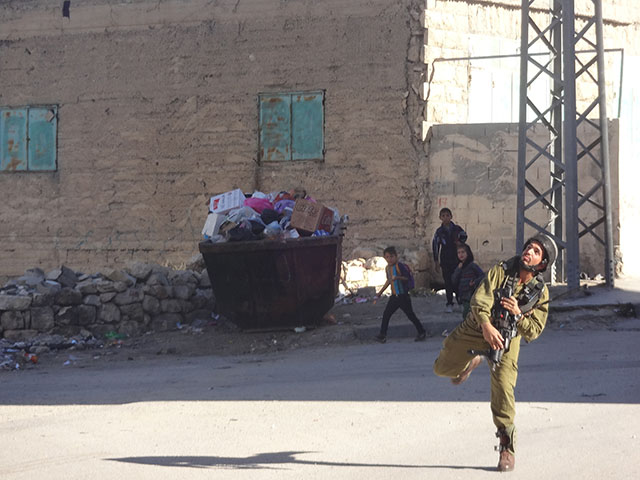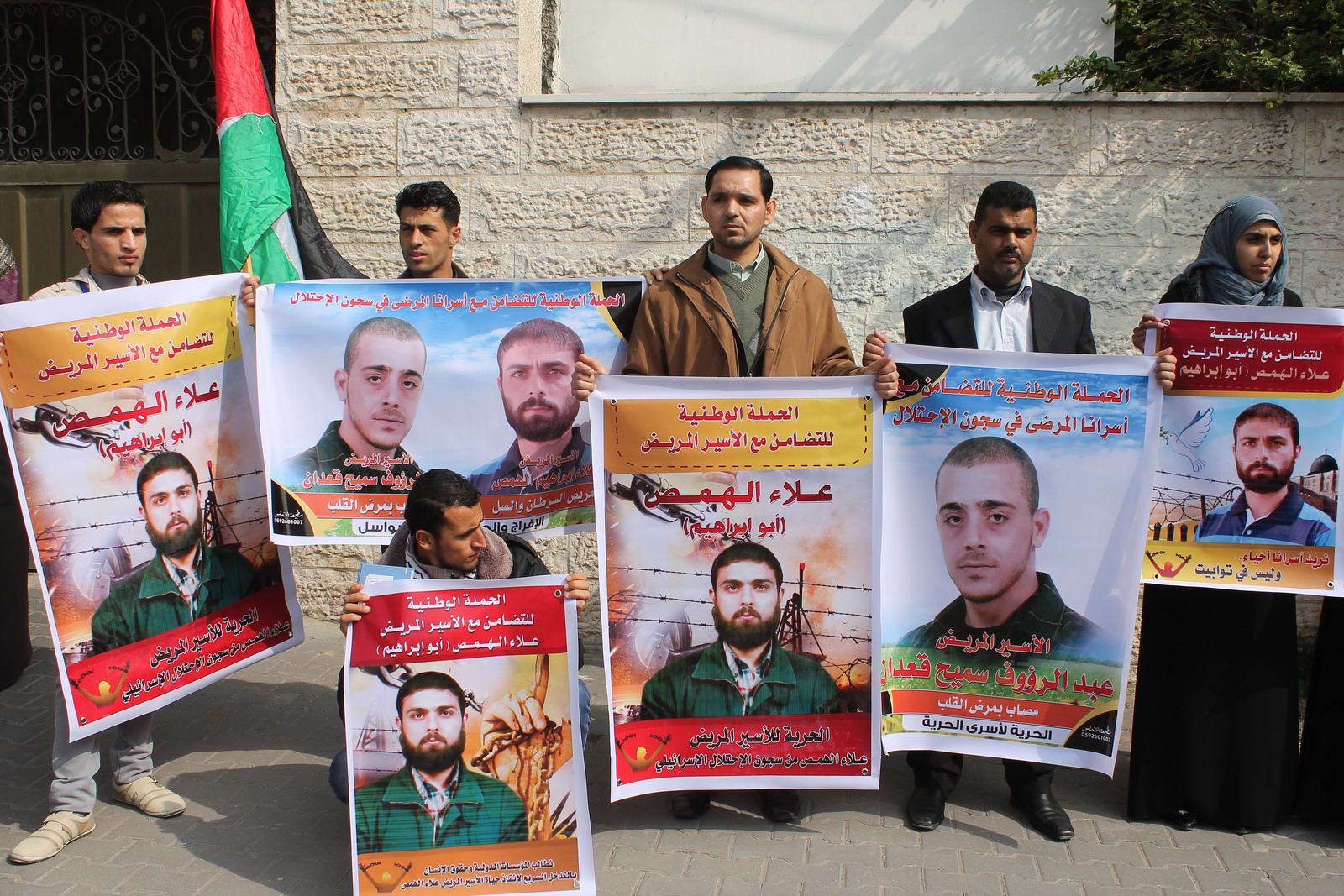Category: Photo Story
-
Photo story: Palestinians protest the deaths of two martyrs
17th May 2014 | International Solidarity Movement | Ofer, Occupied Palestine On the 16th May, Palestinians protest on the road to Ofer prison, following the murder of two Palestinian youths on the same road on the previous day during the Nakba Day protest. The youths, 22-year-old Muhammad Audah Abu al-Thahir and 17-year-old Nadim Siyam Nuwarah, were…
-
PHOTO STORY: Israeli soldiers continue harassment of schoolchildren in Hebron
15th May 2014 | International Solidarity Movement, Khalil Team | Hebron, Occupied Palestine This morning in al-Khalil (Hebron), one young child threw one stone towards the checkpoint. Four Israeli soldiers then entered through checkpoint 29, provoking the children who were gathered to go to school. Several children then threw approximately four stones towards the soldiers, who then threw…
-
PHOTOS: Palestinians rally in Gaza for hunger-striking and sick detainees
2nd March 2014 | International Solidarity Movement, Gaza Team | Gaza, Occupied Palestine In recent weeks, protests for both sick Palestinian detainees and those engaging in long-term hunger strikes have increased in the Gaza Strip. Last Monday morning, following a regular weekly sit-in in the International Committee of the Red Cross’ Gaza office, demonstrators rallied…



